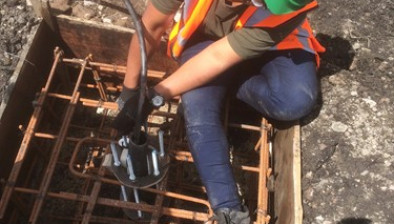Network Rail opens up infrastructure projects to third party firms
 Network Rail is to enable third parties to build and invest in its railway infrastructure projects as part of sweeping new procurement reforms.
Network Rail is to enable third parties to build and invest in its railway infrastructure projects as part of sweeping new procurement reforms.
Network Rail invests almost £130 million in Britain’s railways every week, with over 15,000 live projects on its books.
A pipeline of opportunities will be published by the end of the year.
Chief executive Mark Carne said the new reforms represent a raft of opportunities for other companies to directly work on Britain’s railway projects and to compete for a slice of this huge market and to potentially deliver further improvements for passengers that otherwise might not happen.
He added that the reforms will also unlock new sources of funding because potential investors will have choices over who delivers projects for them. This will reduce the burden on central government and taxpayers and create new opportunities for passengers and the communities that depend on the railway.
Mr Carne said: “A growing railway drives the economy, jobs and housing and by welcoming open competition into the core of our business we will increase the pace of innovation, creativity and efficiency and could deliver even more improvements to our railway and for the people that use and rely on it every day.
“I am determined to create an environment where innovative third party companies can compete for and directly deliver railway projects. These reforms mark the next stage of Network Rail’s transformation having already decentralised into nine devolved individual businesses.”
Some of the reforms announced by Network Rail include:
The reforms have been welcomed by infrastructure giants Balfour Beatty, AECOM and Costain.
Leo Quinn, Balfour Beatty group chief executive, said: “The changes set out are designed to unlock exciting opportunities to invest and improve the UK’s rail network.
“At the same time this should provide a steadier flow of investment, moving away from the stop-go nature of a regulatory cycle, and helping the rail supply chain to invest in the skilled workforce necessary to build world-class railways.”
Richard Robinson, chief executive, civil infrastructure, AECOM, said: “Whilst we recognise the excellent work that Network Rail does to maintain and improve the UK rail network we also recognise the need for collaboration between the public and private sectors.
“Network Rail’s announcement is an extremely positive step forward for the future of UK rail infrastructure. We believe creating opportunities for private investment will lead to successful projects being completed on schedule, at lower cost and with greater accountability.”
Andrew Wyllie, chief executive, Costain added: “As a major engineering solutions provider to Network Rail, I welcome the proposals which represent innovative thinking in the way critical rail infrastructure is delivered in the UK. Our railway infrastructure is essential to support a growing economy, and enables us to go about our daily lives efficiently and cost effectively. Constant innovation and the increasing integration of technology solutions will ensure that the UK has the 21st century rail infrastructure from which we can all benefit. “
One of the first examples of railway projects being privately financed in an innovative way is Network Rail’s new two-year deal with Resonate – the British signalling and train control specialists.
The deal sees Resonate introduce its new, digital traffic management system into the signalling and control systems for the main lines out of London Paddington that could reduce delays by up to 15%.
The deal sees the supplier financing and bearing the risk of introducing the new technology but it will reap rewards from the savings made in reducing delays.

















